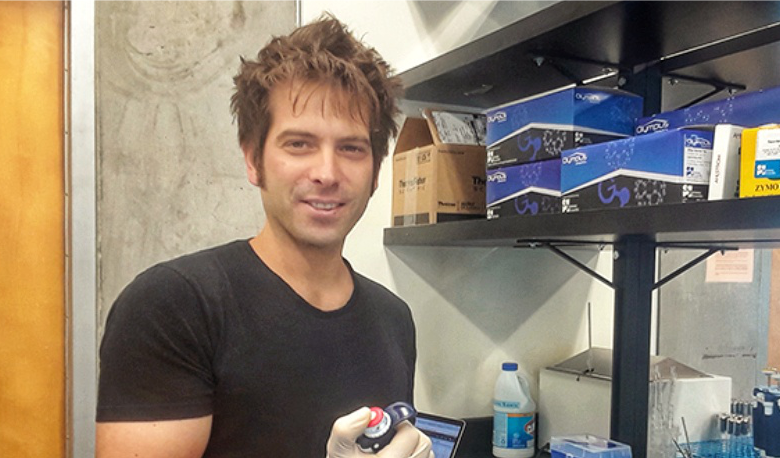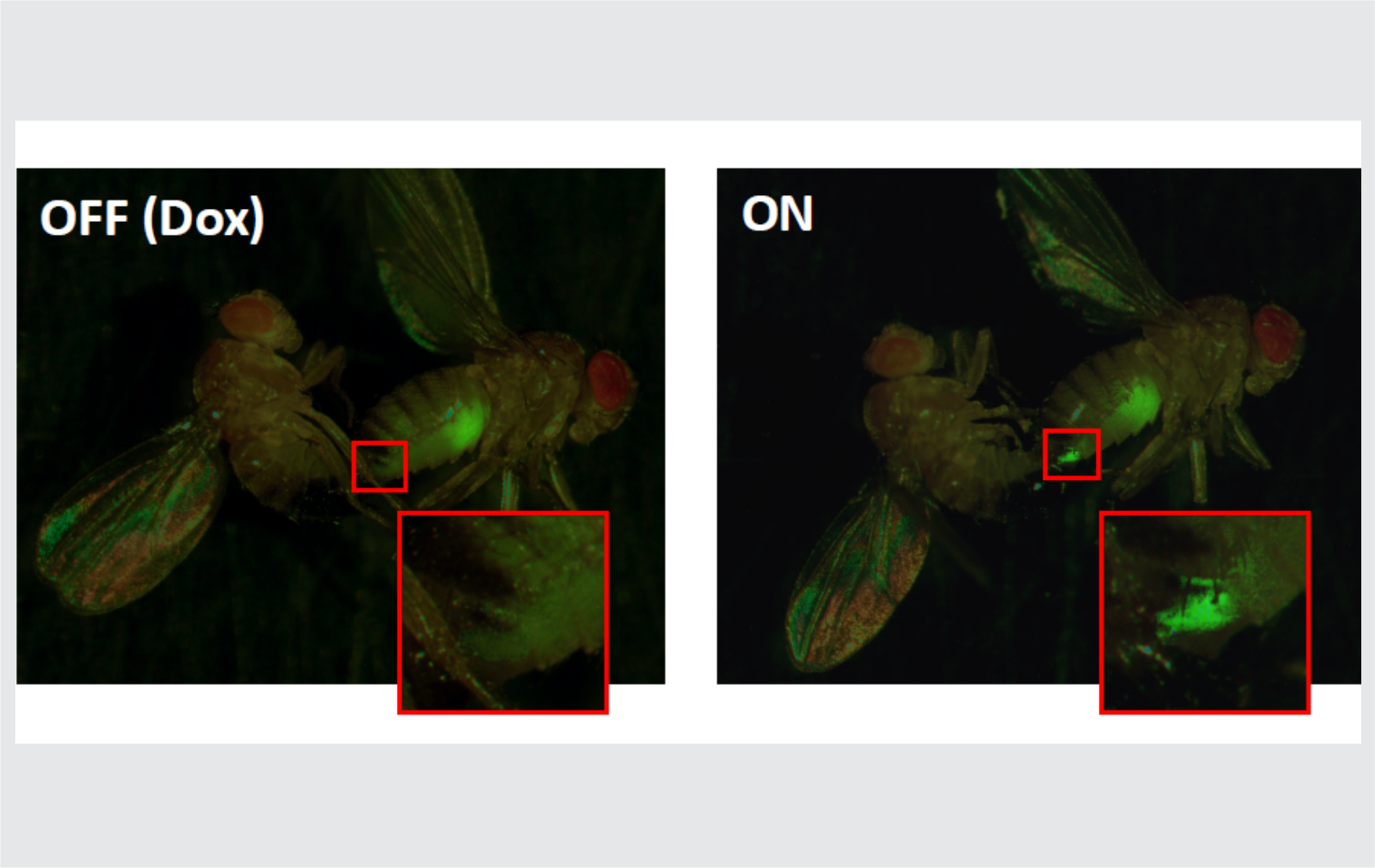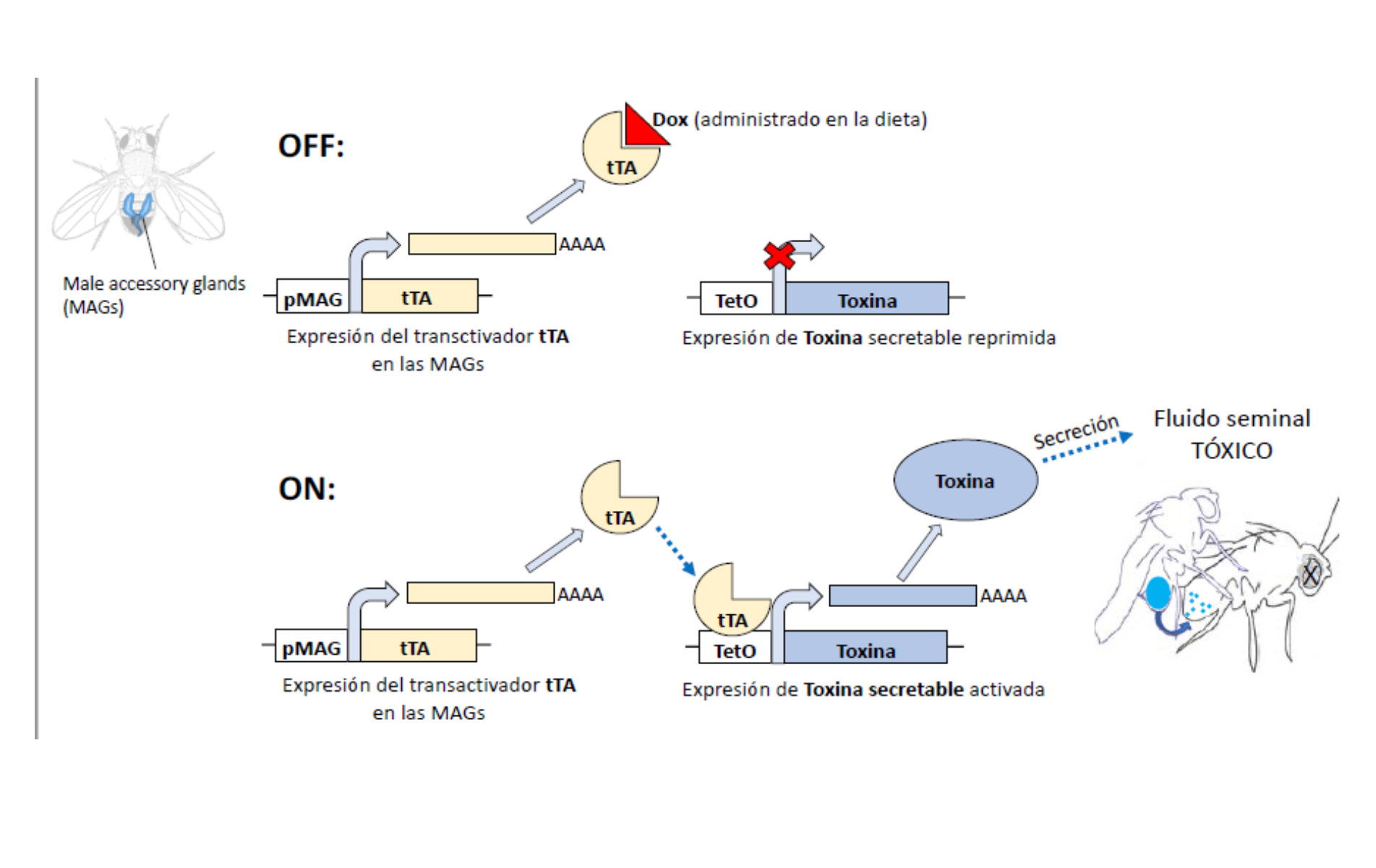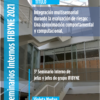
Evolution and development of insect reproductive traits
Dr. Juan Hurtado
PROJECT LEADER / DIRECTOR DE PROYECTO
Docente Auxiliar (Ayudante de Primera) EGE-FCEN, UBA
Investigador Adjunto CONICET
I am an evolutionary geneticist using Drosophila flies as a model to research the evolution of reproductive traits such as seminal proteins. I am also a wildlife lover interested in nature conservation. My biggest professional ambition is to transfer the findings on insect reproductive biology into the development of environmentally-friendly tools for insect pest management. I particularly sought to generate species-specific and non-contaminant insecticides by genetically engineering reproductive proteins.
Research Projects / Líneas de Investigación
Under construction
Under construction
Under construction
- Belliard S.A., Bachmann G.E., Fernández P.C., Hurtado J., Vera M.T. & Segura D.F.
Identification of host plant volatile stimulants of Anastrepha fraterculus male courtship behavior.
Frontiers in Ecology and Evolution. 10:943260 1–6. https://doi.org/10.3389/fevo.2022.943260.
- Hurtado J., Almeida F., Belliard S., Revale S. & Hasson E.
On how to identify a seminal fluid protein: a response to Wigby et al.
Insect Molecular Biology 1–6. https://doi.org/10.1111/imb.12806.
(see the not peer-reviewed Preprint)
- Rondón J.J., Pisarenco V.A., Rozas J., Moreyra N.N., Hurtado J.* & Hasson E.*
*: Shared co-last authorship.
Evolution of the Odorant-Binding Protein gene family in Drosophila.
Frontiers in Ecology and Evolution. 10:957247. https://doi.org/10.3389/fevo.2022.957247.
- Hurtado J., Revale S. & Matzkin L.M.
Propagation of seminal toxins through binary expression gene drives can suppress polyandrous populations.
Scientific Reports 12, 6332 (2022). https://doi.org/10.1038/s41598-022-10327-4
- Hurtado J., Almeida F.C., Belliard S.A., Revale S. & Hasson E.
Research gaps and new insights in the evolution of Drosophila seminal fluid proteins.
Insect Molecular Biology. 10.1111/imb.12746. https://doi.org/10.1111/imb.12746.
- Devescovi F., Hurtado J. & Taylor P.W.
Mating-induced changes in responses of female Queensland fruit fly to male pheromones and fruit: A mechanism for mating-induced sexual inhibition.
Journal of Insect Physiology. https://doi.org/10.1016/j.jinsphys.2021.104195
- Bennardo L., Kreiman L., Gandini L., Rondón J., Turdera L., Hurtado J., Hasson E.
First record of the Spotted-wing Drosophila (Diptera: Drosophilidae) in Martín García Island Wildlife Refuge in Argentina.
Revista de la Sociedad Entomológica Argentina. 80(3): 53-57.
- Moreyra N.N., Mensch J., Hurtado J., Almeida F., Laprida C. & Hasson E.
What does mitogenomics tell us about the evolutionary history of the Drosophila buzzatii cluster (repleta group)?
PLoS ONE. https://doi.org/10.1371/journal.pone.0220676
- Hurtado J., Almeida F., Revale S. & Hasson E.
Revised phylogenetic relationships within the Drosophila buzzatii species cluster (Diptera: Drosophilidae: Drosophila repleta group) using genomic data.
Arthropod Systematics and Phylogeny. https://doi.org/10.26049/ASP77-2-2019-03
- Fernandez Goya L.*, Hurtado J.* & Hasson E.
Female remating rate and pattern of sperm use suggest intense sperm competition in Drosophila antonietae (Diptera: Drosophilidae). *: Shared co-first authorship.
Evolutionary Ecology. https://doi.org/10.1007/s10682-019-10003-6
- Hasson E., De Panis D., Hurtado J. & Mensch J.
Host plant adaptation in cactophilic species of the Drosophila buzzatii cluster: fitness and transcriptomics.
Journal of Heredity. https://doi.org/10.1093/jhered/esy043
- Iglesias P.P., Soto I.M., Soto E.M., Calderón L., Hurtado J. & Hasson E.
Rapid divergence of courtship song in the face of neutral genetic homogeneity in the cactophilic fly Drosophila buzzatii.
Biological Journal of the Linnean Society. https://doi.org/10.1093/biolinnean/bly108
- Jaime M.D.L.A., Hurtado J., Loustalot-Laclette M.R., Oliver B. & Markow T.
Exploring effects of sex and diet of Drosophila melanogaster head gene expression.
Journal of Genomics. https://dx.doi.org/10.7150/jgen.22393
- Mensch J., Hurtado J., Zermoglio P.F., de la Vega G., Rolandi C., Schilman P.E., Markow T.A. & Hasson E.
Enhanced fertility and chill tolerance after cold-induced reproductive arrest in females of temperate species of the Drosophila buzzatii complex.
Journal of Experimental Biology. https://doi.org/10.1242/jeb.150540
- Soto E.M., Betti M., Hurtado J. & Hasson E.
Differential responses to artificial selection on oviposition site preferences in Drosophila melanogaster and D. simulans. Insect Science. http://dx.doi.org/10.1111/1744-7917.12176
- Hurtado J., Iglesias P., Lipko P. & Hasson E.
Multiple paternity and sperm competition in the sibling species Drosophila buzzatii and D. koepferae.
Molecular Ecology. https://doi.org/10.1111/mec.12436
- 2013. Hurtado J. & Hasson E.
Inter and intraspecific variation in female remating propensity in the cactophilic sibling species Drosophila buzzatii and D. koepferae.
Journal of insect physiology. https://doi.org/10.1016/j.jinsphys.2013.03.007
- Hasson E., Soto I., Soto E. & Hurtado J.
Adaptación y especiación en Drosophila.In Darwin en el Sur, ayer y hoy. (eds. E. Hasson, N. Lavagnino, P. Lipko, A. Massarini, J. Mensch, V. Scheinsohn, A. Tropea).
Libros del Rojas. Buenos Aires.
- Hurtado J., Soto E.M., Orellana L. & Hasson E.
Mating success depends on rearing substrate in cactophilic Drosophila.
Evolutionary Ecology. http://dx.doi.org/10.1007/s10682-011-9529-z
- Soto E.M., Goenaga J., Hurtado J. & Hasson E.
Oviposition and performance in natural hosts in cactophilic Drosophila.
Evolutionary Ecology. https://doi.org/10.1007/s10682-011-9531-5
- Soto I.M., Soto E.M., Carreira V.P., Fanara J.J., Hurtado J. & Hasson E.
Geographic patterns of inversion polymorphism in the second chromosome of cactophilic Drosophila buzzatii from northeastern Argentina.
Journal of Insect Science. https://doi.org/10.1673/031.010.14141
2023 – 2025. Subsidio PICT-2021-GRF-TI-00182: Programa de subsidios para grupos de reciente formación – AGENCIA I+D+i. Ingeniería genética de proteínas seminales como estrategia innovadora para el control de insectos. Rol: Investigador Responsable.
- Fulbright-CONICET grant/scholarship: Visiting scholar program – Fulbright. Genetic engineering of seminal proteins as an innovative approach for insect population control. Rol: Investigador Responsable.
2023 – 2024. Subsidio PIBAA 2022: Programa de subsidios para investigadores asistentes/adjuntos – CONICET. Ingeniería genética de proteínas seminales como herramienta innovadora para el control poblacional de insectos. Rol: Investigador Responsable.
2021 – 2024. Subsidio PICT 2019-00062: Programa raíces – AGENCIA I+D+i. Arquitectura genética del ovipositor aserrado de la plaga de frutales Drosophila suzukii. Rol: Miembro de Grupo Responsable.
2018 – 2020. Subsidio PICT 4113/2016: Programa para investigadores jóvenes – AGENCIA I+D+i. Evolución del fenotipo a partir de genes nuevos, ¿cómo afecta el mecanismo de origen génico a la tasa de evolución adaptativa en Drosophila? Rol: Investigador Responsable.
- Subsidio CONICET: Programa de financiamiento parcial para estadías breves en el extranjero – CONICET. Using δ-endotoxins to generate transgenic toxic ejaculates as a novel control strategy against target insect females. Rol: Investigador Responsable.
-
noticias frankel
28/10/2019 Noticias / Medios - Frankel
Mon | Tue | Wed | Thu | Fri | Sat | Sun |
|---|---|---|---|---|---|---|
mayo | 1 | 2 | 3 | 4 | 5 | 6 |
7 | 8 | 9 | 10 | 11
| 12 | 13 |
14 | 15 | 16 | 17 | 18 | 19 | 20 |
21 | 22 | 23 | 24 | 25 | 26 | 27 |
28 | 29 | 30 | julio | julio | julio | julio |
Integrantes del grupo
Paula Petek
Undergraduate student
Paula Petek
Undergraduate student
- Phone:+549 (11) 3322-8633
- Email:hurtado.juanp@gmail.com
Miembros Anteriores
Dr. 1
Dr. 2



